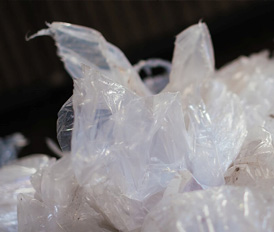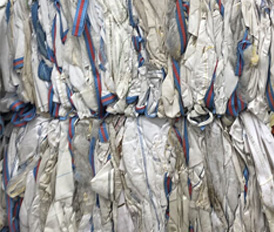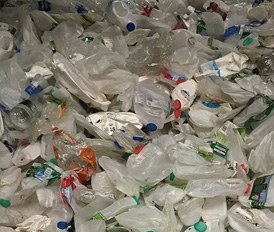EU to Ban Single-Use Plastic Packaging
by George Kiernan
Pakire Polymers News
Tackling Plastic Pollution
In a bold move to address the escalating problem of plastic pollution, the European Union (EU) has introduced comprehensive regulations aimed at drastically reducing the use of single-use plastics and packaging waste. This initiative represents a significant step forward in the EU’s environmental policy, showcasing a commitment to preserving the planet for future generations.
Clampdown on Single-Use Plastics
Since July 3, 2021, the EU has enforced stringent restrictions on various single-use plastic items, including plates, cutlery, straws, balloon sticks, and cotton buds. These measures were designed to mitigate the harmful effects of plastic waste on the environment, particularly marine ecosystems. Such items, often found littering beaches and oceans, pose a severe threat to wildlife and contribute to the broader issue of pollution.
Ambitious Packaging Regulations
Building on the momentum of its initial steps, the EU has reached a provisional political agreement that proposes new regulations on packaging and packaging waste. Highlighting this proposal are binding reuse targets set for 2030 and indicative targets for 2040. A notable aspect of the agreement is the decision to outlaw certain single-use plastic packaging formats from January 1, 2030. Furthermore, it compels EU member states to achieve a reduction in packaging by 5% by 2030, escalating to 10% by 2035, and 15% by 2040.
Rapporteur Frédérique Ries emphasised the importance of reducing packaging consumption across all materials, calling on all stakeholders to play their part in tackling excessive packaging. The agreement also focuses on health by prohibiting forever chemicals in food packaging, fostering innovation while offering exemptions for micro-enterprises.
Prohibited Packaging Formats
The specific packaging formats facing bans include those used for unprocessed fresh fruits and vegetables, foods and beverages consumed in cafés and restaurants, individual packets for portions of condiments, sauces, creamer, and sugar, miniature toiletry products in accommodations, and shrink-wrap for suitcases at airports. Additionally, the deal promotes the use of reusable packaging, sets minimum recycled content targets, and improves recyclability requirements.
Awaiting Formal Approval
Before these measures can be implemented, they require formal approval by the European Parliament and Council. Carla Worth from Common Seas lauded the EU’s approach as setting a global benchmark in combating plastic pollution through upstream interventions, including bans, reduction, and reuse targets.
Conversely, Michael Laurier, CEO of Symphony Environmental, criticised the EU’s stance, labelling it as “plastiphobia”. He advocated for the advancement of plastic manufacturing technology, specifically highlighting the potential of d2w masterbatch technology to produce biodegradable plastics that leave no toxicity or microplastics. Laurier argued for the continued use of plastics, citing their critical role in ensuring food safety and security.
Pakire Polymers Perspective
Pakire Polymers, a dedicated recycling company, actively supports efforts to mitigate plastic pollution. As specialists in transforming plastic waste back into valuable resources, Pakire Polymers emphasises the importance of reducing plastic pollution through diligent recycling efforts rather than pollution becoming an inevitable outcome.
The company believes that any decision to implement a ban on plastics should be made with great caution. Pakire Polymers acknowledges that while reducing plastic use is crucial, there are scenarios where single-use plastics play a vital role, such as in the medical field and in preserving the freshness and shelf life of food products.
Rather than advocating for outright bans on single-use plastics, Pakire Polymers suggests exploring alternative solutions. One such alternative is the development and use of bioplastics, which offer the convenience and utility of traditional plastics but with the added advantage of being biodegradable, thus minimising environmental harm.
Pakire Polymers also proposes that instead of imposing bans, regulatory measures could be introduced to encourage the use of recycled materials in packaging production. This approach would not only bolster the recycling industry by increasing demand for recycled materials but also ensure that packaging is designed to be fully recyclable. Furthermore, legislation could mandate businesses that utilise and dispose of packaging to recycle it, thereby diverting waste from landfills.
However, the company recognises that there are instances where the use of plastics is unnecessarily wasteful, such as the practice of shrink-wrapping suitcases at airports or providing miniature toiletries in hotels. In these cases, Pakire Polymers sees value in implementing bans, as reusable alternatives can serve just as effectively without contributing to plastic pollution.
Pakire Polymers urges the European Union to thoroughly evaluate both the environmental and economic implications of any proposed plastic ban. The goal is to avoid unintended negative consequences by ensuring that measures taken are both practical and beneficial in the long term.
Share article on your social media
More related articles
Stay Tuned
Work with Us
If you have a passion for recycling and for achieving a sustainable future, then we want to hear from you.





